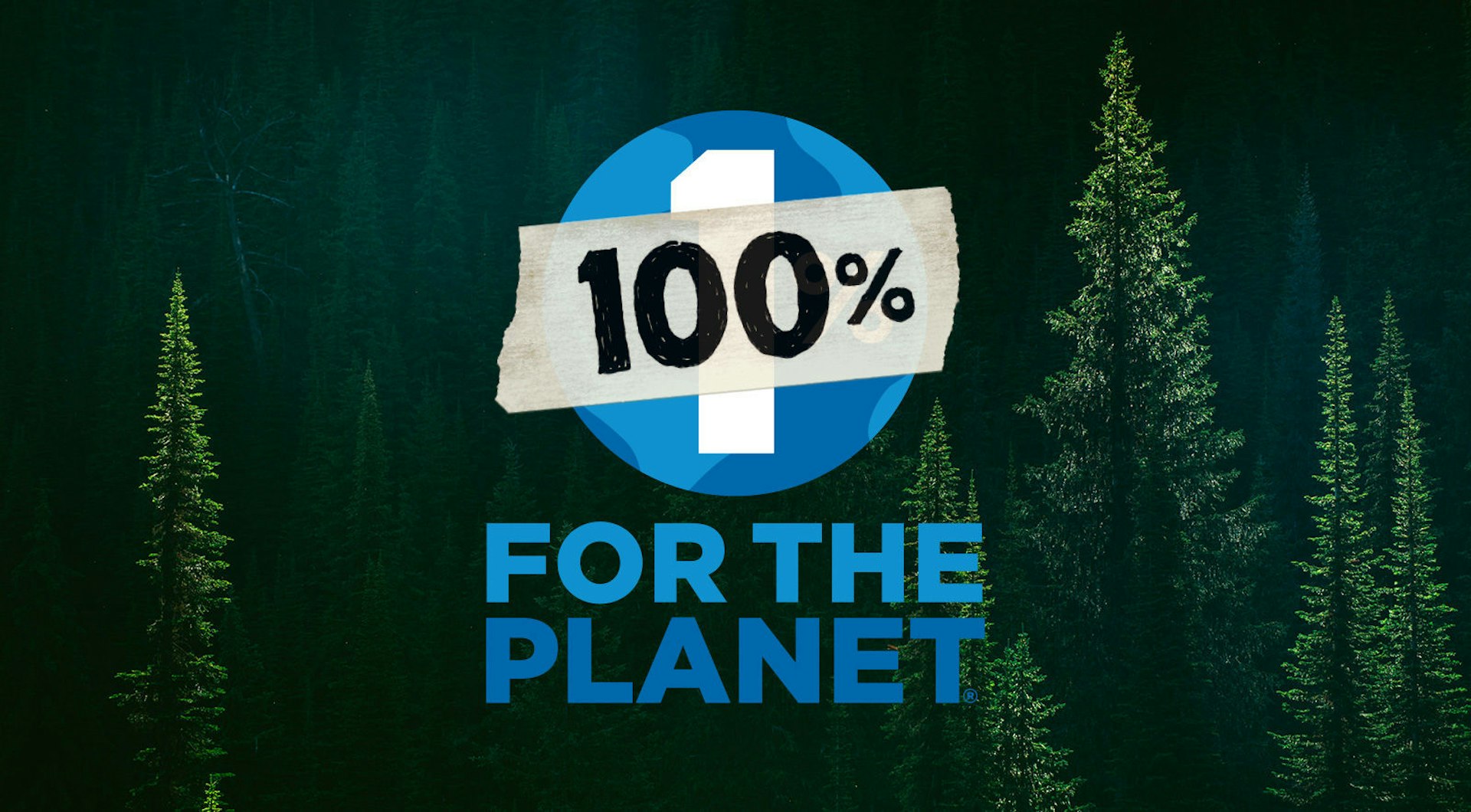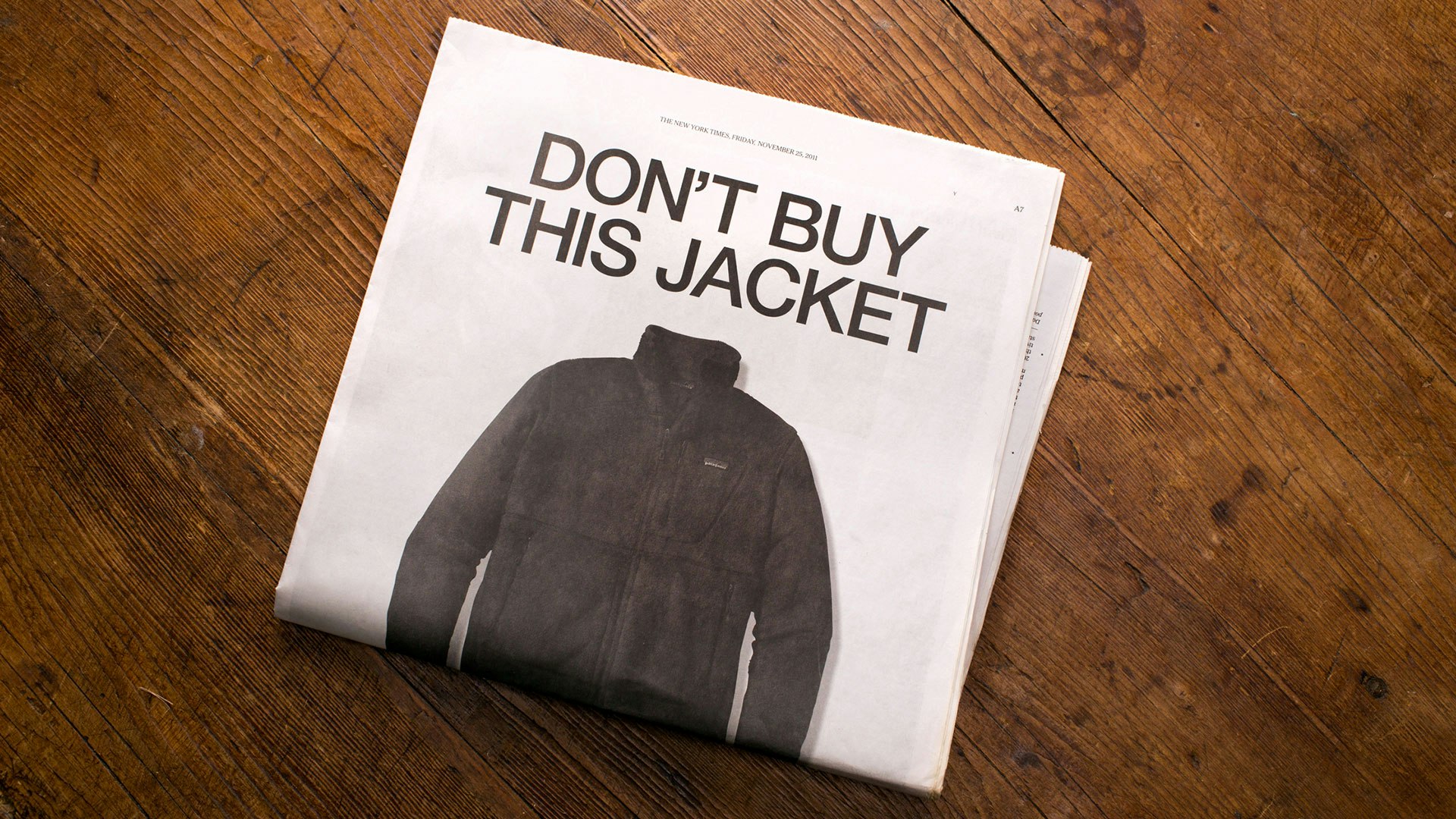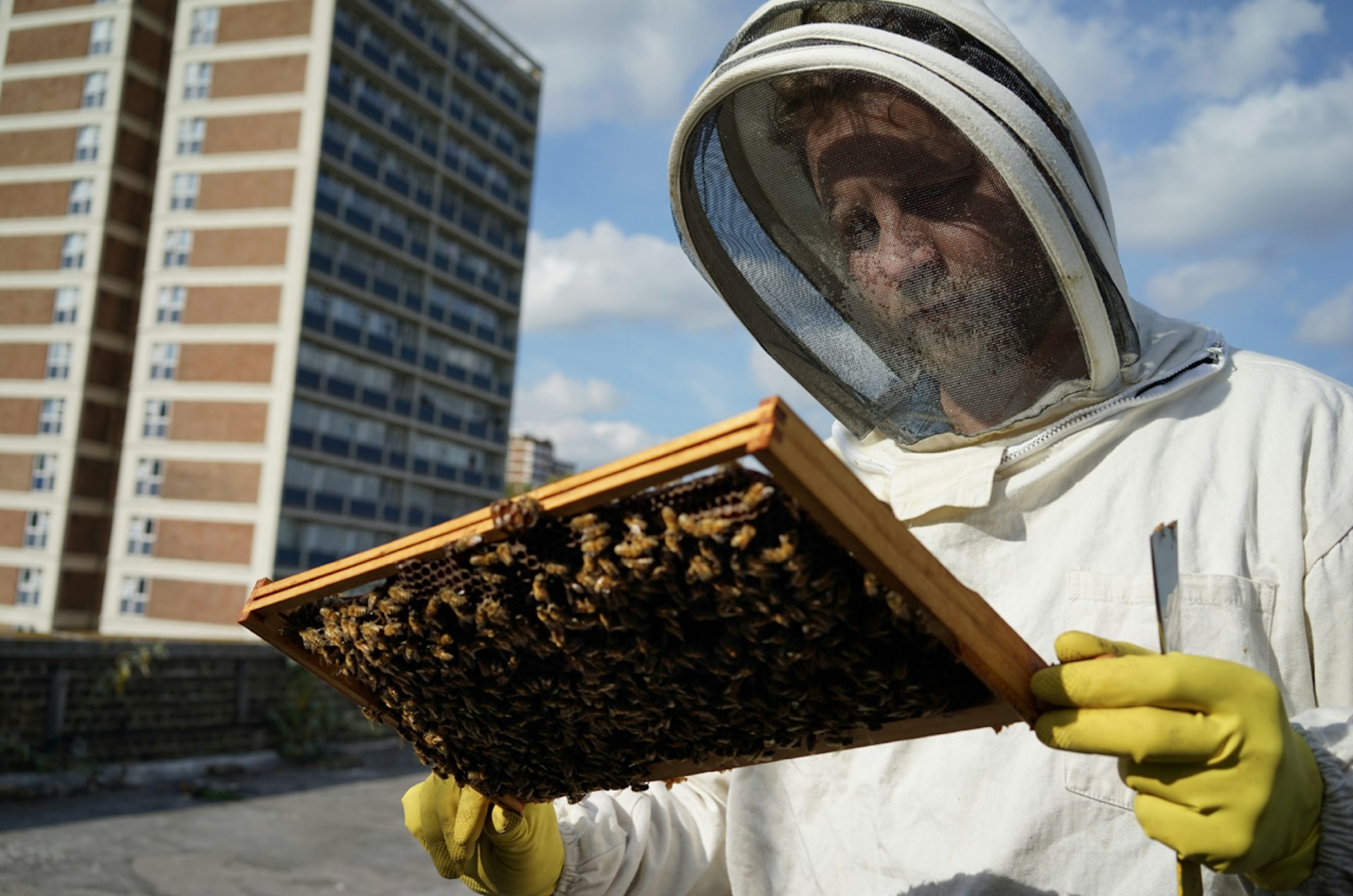
Black Friday is terrible for the planet: Patagonia challenge us to think and buy differently
- Text by Shelley Jones
Big business doesn’t usually act against its own interests. But then Patagonia is not really like any other big business in the world. Part clothing company, part radical environmentalist organisation, the brand has led the charge in reforming many manufacturing and business principles in the decades since its inception in 1973; from eradicating unethical materials and practices to pouring money into important conservation and activism.
Founded by Californian surfer and climber-turned-’reluctant businessman’ Yvon Chouinard, its mission statement has always been: Build the best product, cause no unnecessary harm, and use business to inspire and implement solutions to the environmental crisis. And to that end the brand made a commitment, back in 1985, to give 1% of its profits to environmental organisations working hard to protect the planet. Today that figure is around $74million.
In 2002 Yvon created the 1% For The Planet initiative to encourage other businesses to do the same. That’s now raised over $100million.
But this Black Friday – the biggest retail day of the year – Patagonia are going one step further and giving away 100% of its sales to environmental organisations. Just to clarify; that’s sales, not profits, so the brand are in the minus on every product sold.
So is this for real? Or very clever marketing strategy? Has any successful business in the history of capitalism ever made a genuine gesture that is not about selling more product? We grilled Patagonia General Manager Ryan Gellert so you can make up your own mind.
Why exactly have you chosen to give away 100% of sales this Black Friday, potentially your most profitable day of the year?
I think the genesis comes from a couple of things; One is that we’ve been pretty active on Black Friday now for a period of time in a variety of ways and I think that comes from a feeling, particularly in America, that there’s an overconsumption orgy that happens this time of year starting with Black Friday… That’s combined with some incredible concerns about the state of the planet, which is something that we think about, work on, and try to remain quite active in regularly… And then finally is this pretty challenging political climate that we find ourselves in… We’ve got a President-Elect in the US who has been very outspoken about his point of view on the value of the Paris [climate] accords and also some fundamental beliefs around climate change and how real it may be. And all of that stacked up made us think more boldly about how we would engage in this Black Friday.
What would you say to someone who accused you of ‘greenwashing’ – using this environmental gesture to ultimately raise your profile and get more people buying Patagonia products?
People have asked that question and made that accusation about everything we’ve done for a long time and to be very clear I actually appreciate the fact that they do, it keeps all of us honest and on our toes. These are good questions to hear. I think probably this Friday is the most definitive I’ve ever felt in saying: I don’t know how you could really accuse us of that. Because in a 24-hour period everything we sell is costing us a pretty significant amount of money… So financially we’re better off if nobody turns up on Friday and of course that’s not what we expect to happen, or what we want to happen…. But again I think that fact that we end up in this conversation as often as we do is a great thing and I think all we can do is keep telling our story and doing our thing and continue to support the things we believe in, in the variety of ways that we do. You know 1% For The Planet, which we helped co-found, goes back for us to 1985 when we made a commitment to give 1% of our revenue [not profit] to small activist groups, and we’ve been doing that ever since – formally through 1% For The Planet since 2002. We seek to minimise our impact in a variety of ways; through eco-innovation, through providing environmental internship opportunities for employees, which are paid for by the company, and a host of other things. That’s what we do and people certainly have a right to form their opinions on what we do and what we stand for.

Ok, but how do you consolidate this environmental attitude with a necessity to make money? I remember the 2011 Patagonia Black Friday campaign, a selection of ads that boldly stated: ‘Don’t Buy This Jacket’. Surely if everybody repaired their Patagonia clothing and never rebought, the company would go out of business?
I mean you’ve really hit there upon the single biggest tension point in the organisation historically and globally. And I think it’s one we’ve made a little bit more peace with as we’ve wrestled with it over the years. But it continues to be a big point of conflict – and I don’t mean some ugly battlefield – just that philosophically we wrestle with this. But I always go back to our mission statement, which has three pieces.
First: Build the best product – we are a product-oriented company and we are very committed to building great products for the many uses that we build them for. And I think the fact that we sell more rows is no way in opposition to that part of our mission statement.
Second: Do no unnecessary harm – this is really where the conflict comes in, and I’ll come back to this in a second.
And then third: inspire and implement solutions to the environmental crisis – this is where I think we’ve actually become quite comfortable with the notion of growth and the notion of being profitable because our size and scale are actually assets for this. When we were this esoteric little brand from Ventura, California… and we weren’t all that profitable or whatever, it was easy to sort of say, ‘Yeah it works for you but it would never work for a bigger brand.’ Well we’re nearing a billion dollars, and we’re quite profitable, and people know who we are and we have a lot of fans around the world. So I think when we speak now we can use a bigger voice, and a more global voice, to provide inspiration.
But still, ‘Do no unnecessary harm’, is where the tension really resides… and the way we navigate this is we don’t feel that we have to grow to retain vibrancy or to be relevant or to survive. I think in many ways Yvon would be happy moving backwards and being a smaller company than we are today. But many of us see the benefits in having a bigger stage, and a bigger impact, and more scale. Also, giving 1% of our revenue – not profits but revenue – every year to groups like the ones we’re focusing extra hard on this Friday, gives us a little peace of mind that if people choose to buy from us, a percentage of that money does go back to making a difference on the issues most important to us. And that’s not necessarily the case if they purchased elsewhere. So while that’s not necessarily a solution to this tension. I think it’s one of the things that puts us a little more at ease.
Do you hope your Black Friday statement challenges other brands?
I wouldn’t use the word challenge but otherwise I agree 100%. I think we really hope that it inspires other brands, businesses and individuals. And I hope it inspires in two ways: On an individual level to think about what you really need before you choose to buy: That is, whether people believe it is authentic or not, really important to all of us and us as a business… And then to focus on the health of the planet and ask yourself: What can I do to make a difference? My hope is that doesn’t end with, ‘Oh spend €100 with Patagonia on Friday.’ I would hope that people decide to learn more about the groups that are working on issues that are important to them in their community, and find out how they can support them. We’ve all got a voice – I think now even more so with the echoing impact of social media, we’ve all got time and skills to donate. We’ve all got some kind of resource and money – some more than others – and in many cases we have votes. And I think those are all things that people should really challenge in themselves and ask; What can I do to really have a positive impact?
Patagonia is donating the money to the organisations represented in its 1% For The Planet network. Generally small, activist-led organisations like Surfers Against Sewage, Coal Action Network and Reclaim The Power. Why do you choose to support these organisations?
You know, on a personal level, I’ve been in this role living in Amsterdam, where our European Headquarters are, for the last couple of years and one the things that’s just been so incredibly inspiring here, and more broadly across Europe…. is just the number of people in small organisations that are fighting the good fight. And a number of these people have walked away from lucrative careers over the years or forgone the opportunity to pursue them. They’re smart, they’re talented, they’re experienced, and they’re marketable. And yet they’ve made the decision to invest their time and lives and careers elsewhere. And so the opportunity for us to partner with groups full of people like that – whether it’s giving them money, helping to amplify their voice, including them in forums or different things that we do – like the Tools for Grassroots Activists Conference we recently held in the Lake District – that’s really why we do what we do. We very much look for small, scrappy, very activist-oriented groups because we believe that change – successful, meaningful change – starts at the bottom every time.
Feels a little too good to be true in the current climate doesn’t it?
Well, I talk at a lot of events with a lot of businesspeople and some of these questions come up – around ‘Don’t buy this jacket’, and greenwashing, and the tension between being a business and a force for change – and they’re really important questions. And then another question that comes up in that context is: Well you’re a big company and you have the resources, what would you suggest somebody like us does? And I’m a firm believer that you should just get up and do something. If you can’t come up with 20 good reasons why you can’t get out off the couch then candidly stop wasting everybody’s time lying on the couch. I think everybody has an opportunity to do something. Companies, publicly traded or otherwise, are just being dishonest with themselves and everyone around them if they deny that. We like to inspire people… and we’re going to keep charging ahead and doing our thing. And I think in this current climate we’re in absolute need of that. The Chouniard family are more than feeling it and they’re invested in being louder, being more present, providing more leadership and putting more resources into things. These are critical times we live in and we need to all find a way to unite around the issues most to important to all of us. And these issues impact Democrats, Republicans, and whatever stripe you’re of, anywhere in the world.
Read more about 100% For The Planet on the Patagonia website.
The Patagonia Thrift Shop opens at Village Underground, Great Eastern Street, London, on November 24, 6-9pm, and November 25, 9am-9pm.
Enjoyed this article? Like Huck on Facebook or follow us on Twitter.
